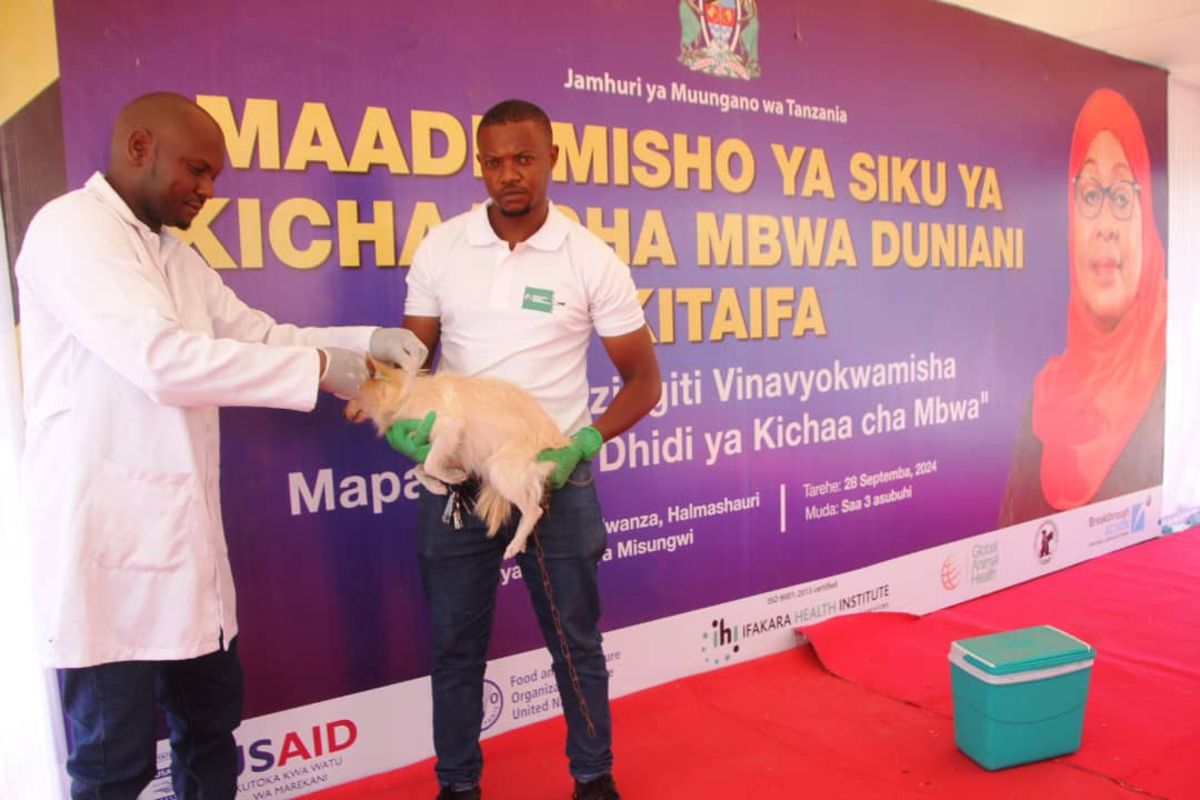
Mwanza. Wakati ugonjwa wa kichaa cha mbwa ukitajwa kusababisha vifo vya zaidi ya watu 59,000 duniani kila mwaka, Serikali ya Tanzania na Marekani zimeamua kuungana ili kupambana nao ikiwemo kuelimisha umma juu ya ugonjwa huo.
Hatua hiyo inakuja ikiwa kichaa cha mbwa bado ni tishio kubwa la afya ya umma nchini Tanzania hasa katika jamii zenye uelewa mdogo na upatikanaji hafifu wa huduma za mifugo.
Shirika la Marekani la Maendeleo ya Kimataifa (USAID), kupitia Mradi wa Breakthrough Action kwa kushirikiana Ofisi ya Waziri Mkuu sehemu ya Afya Moja, Wizara ya Mifugo na Uvuvi, Wizara ya Afya, na Ofisi ya Rais (Tamisemi), wametumia fursa ya maadhimisho ya Siku ya Kichaa cha Mbwa kama sehemu ya juhudi za kimataifa za kupambana na ugonjwa huo.
Kupitia kampeni ya kitaifa ya “Holela-Holela Itakukosti,” yenye lengo la kuiwezesha jamii kupambana na ugonjwa huo, Usaid na Serikali ya Tanzania inawakumbusha wananchi kuwajibika na kuondoa vikwazo ili kushinda vita dhidi ya hatari ya ugonjwa huo.
Awali, wakati wa maadhimisho ya Siku ya Kichaa cha Mbwa, ambayo hufanyika kila mwaka Septemba, 28 kampeni ya “Holela-Holela Itakukosti,” ambayo tafsiri yake ni uzembe ni gharama, ilichukua nafasi kubwa katika kuongeza uelewa kuhusu kichaa cha mbwa, ugonjwa unaosababisha vifo vya zaidi ya watu 59,000 duniani kila mwaka.
Tukio hilo la kitaifa liliongozwa na Abdul Mhinte, Naibu Katibu Mkuu Wizara ya Mifugo na Uvuvi, ambaye amesisitiza umuhimu wa elimu kwa jamii na mikakati ya chanjo katika kupambana na ugonjwa.
Aidha amehimiza kuimarishwa kwa ushirikiano kati ya maofisa wa afya ya umma na jamii za mitaa ili kuimarisha mwitikio wa pamoja.
“Kichaa cha mbwa kinaweza kuzuilika. Lengo letu ni kuhakikisha kila mbwa nchini Tanzania anapatiwa chanjo, na kila mwananchi anajua cha kufanya endapo atang’atwa na mbwa. Kila jamii inapaswa kuchukua jukumu lake katika vita hivi.”
Msisitizo wake juu ya elimu na ushirikiano ulipeleka ujumbe wa matumaini kwa waliohudhuria. Kampeni hiyo inalenga jamii kwa kutoa ujumbe muhimu kuhusu kichaa cha mbwa, kuwachanja na kutafuta huduma za afya mara baada ya tukio la kung’atwa na mbwa.
Watoto, ambao ni miongoni mwa walio hatarini zaidi kuathiriwa na kichaa cha mbwa, wanapewa elimu juu ya kuepuka mwingiliano kama kuwachokoza mbwa hasa wasiowafahamu na wanyama wenye uwezekano wa kuwa na maambukizi.
Shuhuda kadhaa zinaonensha umuhimu wa kampeni hii. Revina, mama wa watoto watatu kutoka Mwanza:”Kabla ya kampeni, sikuwa najua hatari ya kichaa cha mbwa. Tulipojifunza kuwa mbwa wetu wanapaswa kuchanjwa, tulichukua hatua mara moja. Sasa, nina amani kuwaacha watoto wangu kucheza nje.”
Kampeni ya Holela-Holela pia inalenga kupambana na sababu zote zinazochangia kuwepo kwa ugonjwa wa kichaa cha mbwa kama vile uelewa mdogo, juhudi hafifu za chanjo, na usimamizi usio salama wa wanyama.
Source: mwananchi.co.tz













